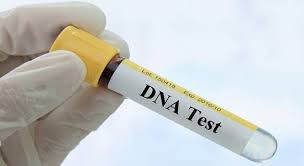One in four paternity tests conducted in Nigeria over the past year showed the presumed father was not biologically related to the child, according to a new report by Lagos-based genetic testing firm, Smart DNA.
The company’s 2025 Annual DNA Testing Report, released this week, found that 25% of paternity tests between July 2024 and June 2025 resulted in exclusion—only a slight dip from 27% the previous year. Despite the marginal decrease, Smart DNA warns the figure reflects a “worrying and consistent trend.”
“These results go beyond science,” said Elizabeth Digia, Operations Manager at Smart DNA. “They reveal deep fractures in trust, relationships, and financial dynamics within Nigerian families.”
Firstborn Boys Most Affected
The report highlighted that firstborn children, especially boys, were most likely to be affected. A staggering 64% of firstborn sons tested were not biologically related to their presumed fathers—far higher than later-born siblings.
Emigration Drives DNA Demand
DNA testing for immigration purposes surged to 13.1% of all cases, reflecting Nigeria’s growing emigration trend, popularly known as the “Japa” wave. Many clients, the report notes, are dual-citizenship families seeking DNA documentation as part of relocation plans.
Men Driving Testing, Especially Older Fathers
Men initiated 88.2% of all tests—nearly half of them aged 41 and above—suggesting that financial capacity plays a significant role in seeking paternity confirmation. Children aged 0–5 made up the majority of those tested (58.6%), indicating rising demand for early certainty.
Lagos Remains DNA Epicentre
Lagos accounted for 69% of all tests, with a growing shift from the Mainland to the Island. Lekki (20.3%), Yaba (15.8%), Ajah and Ikorodu (10.5%), and Surulere and Ikeja (9%) emerged as key testing hotspots.
Cultural and Ethnic Trends
The data shows Yoruba families made up 53% of test cases, followed by Igbo (31.3%). Hausa participation remained low at just 1.2%, pointing to cultural hesitancy around DNA testing.
The preference for testing male children (53.8%) also underscores societal focus on male lineage, inheritance, and family name continuity.
Call for Legal Reform
With 83.7% of tests requested for “peace of mind” rather than legal reasons, and only 1.4% court-ordered, Smart DNA is calling for urgent legal reform. Unlike South Africa, Nigeria has no laws addressing paternity fraud.
“Some clients live with suspicion for years, facing emotional trauma or financial exploitation,” Digia said. “A national policy is long overdue.”
Smart DNA clarified that the report is based on anonymised client data and reflects only cases where paternity was already in question. “These figures should not be interpreted as representative of the general population,” the company stated.



